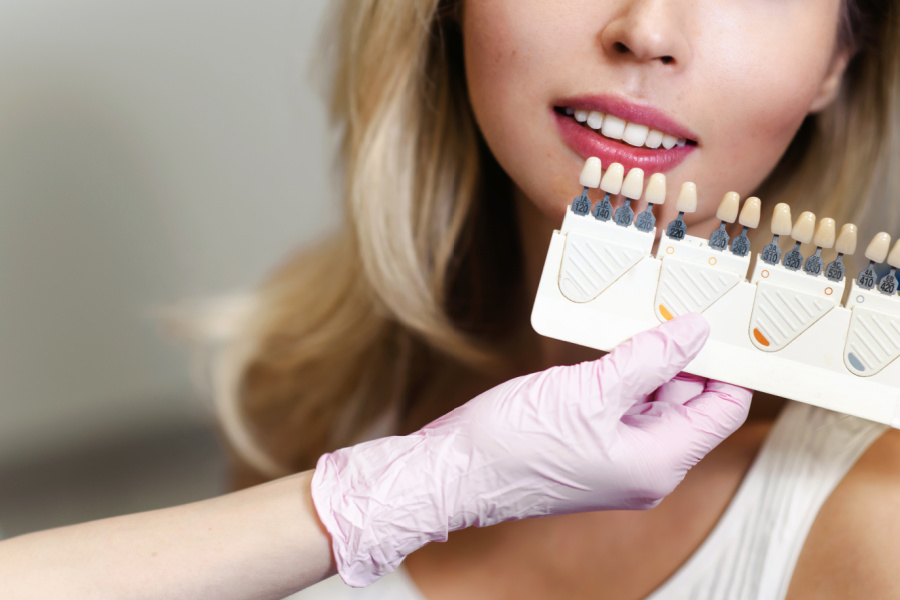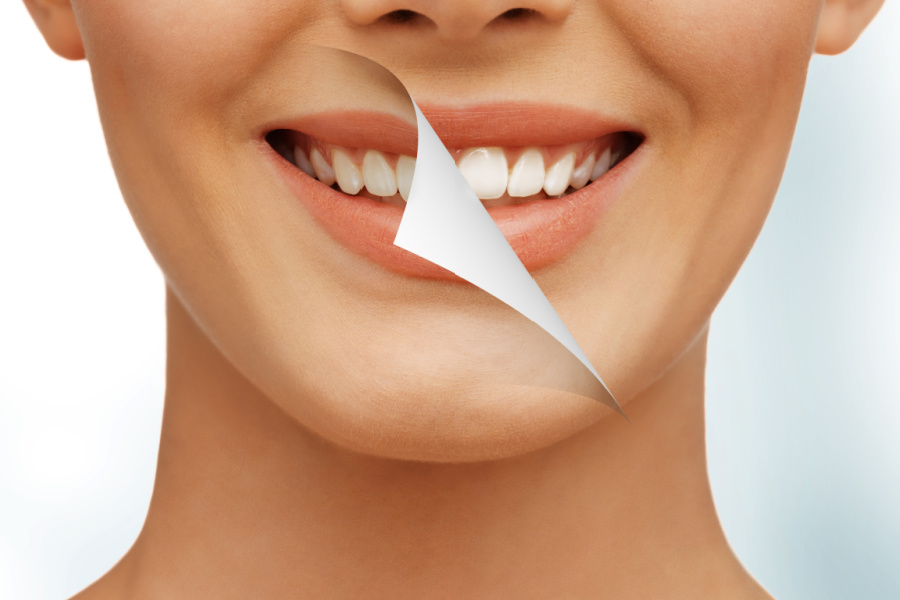
Everyone deserves to feel confident in their smile. For those with minor dental imperfections, veneers offer a simple, low-maintenance solution to enhance the look of teeth that are chipped, discolored, or uneven in size or shape.
A question we’re often asked is: “Do veneers stain?” The answer varies depending on the type of veneers—porcelain or composite—and how well they’re cared for.
Edgbaston Smile Clinic Explains
Wondering whether your veneers can stain? Here’s what you need to know about the difference between porcelain and composite veneers:
Porcelain veneers are designed to be highly resistant to staining. Unlike natural tooth enamel, which is porous and can absorb stain-causing substances, porcelain is a non-porous material. This means that popular drinks like coffee, tea, and red wine are much less likely to leave a mark on your smile. With proper care and regular dental hygiene, your porcelain veneers can stay bright and beautiful for years—often lasting a decade or more with excellent maintenance.
Key Benefits:
Composite veneers are crafted from a resin material that, while versatile and effective, is more porous than porcelain. As a result, composite veneers can stain over time in much the same way as natural teeth—especially with frequent exposure to coffee, wine, or tobacco. Composite veneers typically have a shorter lifespan, often lasting five to seven years before needing to be refreshed or replaced due to wear or staining.
Things to Consider:
At Edgbaston Smile Clinic, we offer both porcelain and composite veneers, helping you choose the right solution for your needs and your lifestyle. Our team is here to answer any questions and guide you through your options with expert care

Porcelain veneers are highly resilient to staining and discoloration thanks to their non-porous surface, unlike natural tooth enamel. However, there are scenarios where veneers—and the teeth beneath them—may still show signs of discoloration. Here’s how it can happen and what you can do:
If you notice any changes in the appearance of your veneers, it’s best to consult your dentist. They can determine the cause and recommend the most effective solution to keep your smile looking its best.
If you have porcelain veneers, there's no need to worry about whitening them. Porcelain is a non-porous, highly stain-resistant material, so everyday whitening strips and toothpastes won’t make a difference. These products are designed to remove discoloration from natural enamel and can’t penetrate or alter the color of porcelain surfaces.
How whitening products work on natural teeth:
Porcelain’s advantage:
Since the porcelain used for veneers is much stronger and less porous than natural teeth, traditional whitening treatments are ineffective.

Composite veneers, made from resin, are more prone to discoloration over time. Unlike porcelain, they can absorb pigments from foods or drinks, and their polish can wear down—making them appear dull or yellow.
If your porcelain veneers seem discolored even with good oral hygiene, it could be due to:
What to do:
Consult your dentist. They can help diagnose the cause and offer the right solution, whether it’s a professional cleaning, adjustment, or in some cases, replacing the veneer.
Advice from Edgbaston Smile Clinic
Porcelain veneers are designed to be low-maintenance and long-lasting, but like natural teeth, they still need daily care to keep your smile healthy and looking its best. Here are our top tips at Edgbaston Smile Clinic for maintaining your veneers and preventing stains:
Brush and floss your veneers just as you would your natural teeth. Daily brushing and flossing remove surface stains and protect the tooth structure behind and around your veneer. Remember, veneers only cover the front of your teeth—so thorough cleaning is essential to prevent decay on the exposed surfaces.
Hard-bristled brushes can be too abrasive for veneers, potentially causing gum recession or scratching the surface. A soft-bristled toothbrush will clean your teeth effectively without damaging your veneers or your gums.
Many whitening toothpastes contain abrasive ingredients like baking soda, which can wear down the bonding and create tiny scratches on your veneers. Opt for a gentle toothpaste or one specifically formulated for veneers. If you’re unsure which to choose, our dental team can recommend the best options for your needs.
While porcelain veneers resist staining, smoking can discolour the natural teeth and gum tissue around them, leading to patchy or uneven colouring in your smile. Smoking may also weaken the adhesive bonds, potentially reducing the lifespan of your veneers. Quitting tobacco will help maintain a bright, uniform smile and support your overall oral health.
Routine dental check-ups and professional cleanings are essential for both your veneers and your natural teeth. Your dentist can identify any issues early—such as gum recession, tooth decay, or bond failure—to ensure your veneers stay secure and beautiful for years to come.
Whether you already have veneers or you're considering stain-resistant porcelain options, our experienced team in Birmingham is here to help. Book an appointment at Edgbaston Smile Clinic to keep your smile healthy and radiant, year after year.


